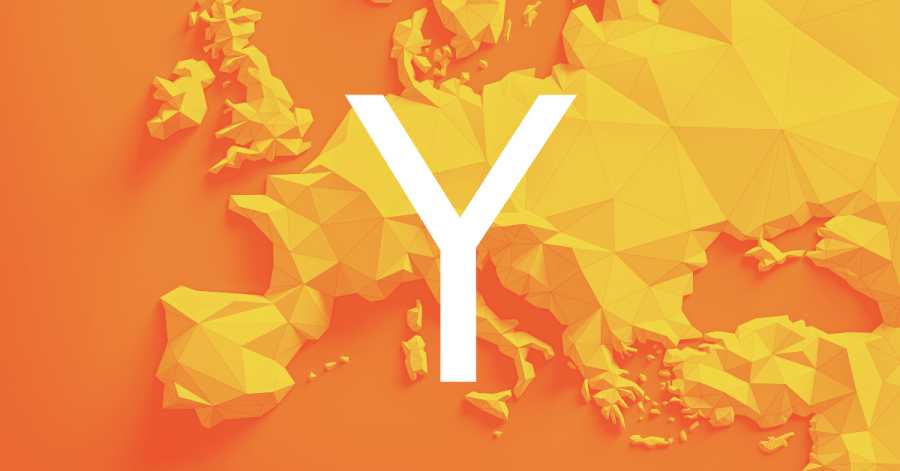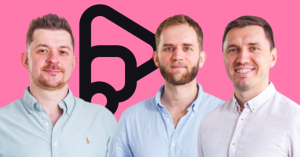Last winter of 2024, 260 companies joined Y Combinator, as selected from over 27,000 applications. With an acceptance rate under 1%, that was one of the most selective cohorts in Y Combinator history.
Entering the world’s most famous startup accelerator is not an easy feat. It won’t be this winter either. Despite that, thousands of founders apply to get in, still hoping to prove their worth.
Why don’t we see more CEE startups getting into Y Combinator?
Benefits are quite well known, from a month program, invaluable advice, and support to a vast alumni network. However, many European startups are still not convinced it is for them… Especially startups from this part of Europe. Most of the CEE countries haven’t had more than 3 startups since YC’s beginnings 20 years ago.
“Y Combinator is very much like a club where people refer each other. European VCs and founders are too insular and not familiar with YC in detail. Likewise, I’ve not heard YC push for more European startups, so it’s selection bias mixed with cultural and market differences,” thinks Tihomir Bajić, General Partner of Fifth Quarter Ventures.
Poland is beating the odds in the region (once again) with the number of startups in YC, so we reached out to Borys Musielak, Co-Founder of Startup Poland and Founder of SMOK Ventures to share his thoughts on the matter. He considers a mix of things influences applications from this part of Europe. Lack of ambition definitely being one.
“People just don’t believe they can get to YC as so many founders from all around the world apply. What they don’t understand is that by putting in the work you can beat 90% of them easily.”
“Only about one in ten applications are actually good enough for YC to take notice, so if you put in the work, you can increase your chances of getting in tenfold,” Musielak argues.
Three companies in SMOK’s portfolio went through Y Combinator: Polish Alokai, Authologic, and Bulgarian Slicker. So we wanted to learn more about preparing the best application there is…
How to get in?
What factors play the most important role in acceptance to the YC Club? Polish-founded Authologic was in YC W21 batch, and its co-founder Jarosław Sygitowicz believes that pinpointing the real problem is actually what got them in. “Knowing the problem we are trying to solve and being able to prove that we are talking to customers who actually have that problem. Also – super clear communication on what is the problem and the solution.”
Cheatsheet Authologic swears by:
1) fall in love with the problem, not the solution;
2) talk to the customers that have that problem; and
3) show the evidence that your solution might solve the problem for the customers.
Musielak is adamant about another thing: Recommendations. “YC is a network. The partners rely heavily on recommendations from former alums. If you have none, you’re putting yourself at a disadvantage”, he warns.
When our portfolio companies apply, we try to make sure they talk to every YC alums from our network possible, get to know them, get their feedback regarding the pitch and the product, and potentially also earn a recommendation that would help them get through the noise of thousands of other applications.
As General Partner, Bajić was at the last Demo Day at Y Combinator assessing this year’s summer batch so he shared his observations on what European founders sometimes miss… Storytelling. Even, or rather more so, when the solution is highly technical.
“YC founders in general are far better storytellers than what is the norm in Europe (where it’s more about context and traction/proof and less about the vision). European startups tend to be more balanced and grounded but need to learn how to dream up far bolder future and tell the world about it.”
“A quick application written by ChatGPT won’t nail it”
There are various ways you can mess up your YC application but there is also a well-known antidote for it: put more effort in. As Musielak emphasizes, getting into YC is a month-long project.
“It starts with talking to dozens of people in the YC network – former managers, YC alums from your country, university, or state – getting their feedback and applying that feedback to make the application stand out. A quick application written by ChatGPT won’t nail it. You need to work on your communication, make sure what you do is as easy to understand as possible, remove all the non-essential stuff, focus on how you got the insights, why what you’re building matters, how excited your customers are, and why this team is the best in the world (literally!) for the job.”
If you decide to apply from a country like Poland or Croatia, YC alumni from CEE should be your main source of knowledge and mentorship, he asserts. “Use them and abuse them as it’s in everyone’s interest to get more YC founders from Central & Eastern Europe.”
To conclude… Note-worthy advice on how to get into Y Combinator has been circling for years now, but these are the ones that repeatedly come up:
- Identify a real problem
- Craft a compelling narrative
- Be concise and direct
- Prove your unique selling proposition
- Showcase your team’s strengths and commitment







